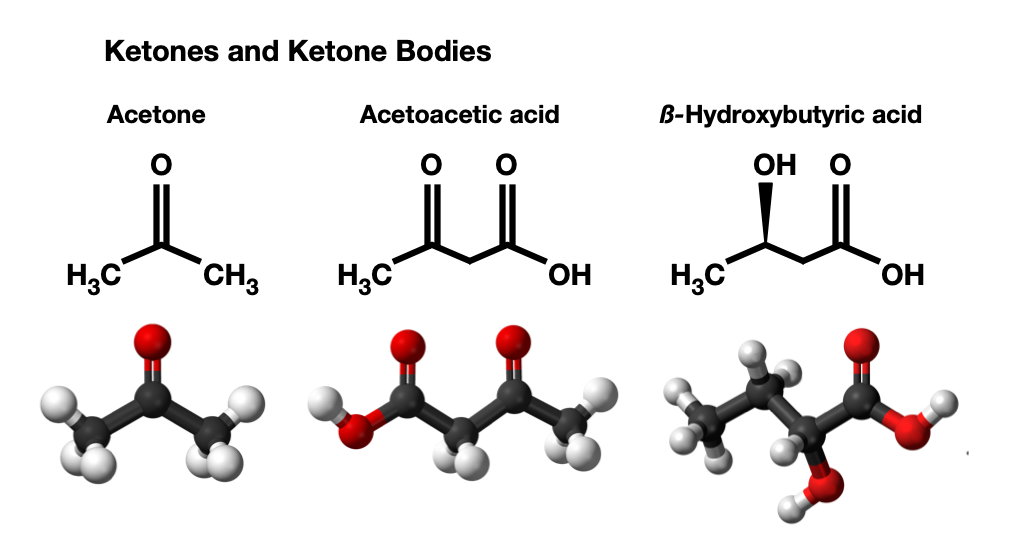Ketosis - Ketogenic Diet
It is a widely held misconception that we need to eat at least some carbohydrates - we do not!
Cells in the body need to use some sort of “fuel” to generate energy for their processes. Glucose and ketone bodies are the main sources for most cells. The liver is the only organ that cannot use ketone bodies for energy, so is glucose dependent, but fortunately it can make its own glucose as needed. Certain organs such as the brain and nerve cells were thought to be dependent on glucose for metabolism, but this idea is being revisited.
However this is not important, as your liver creates all the glucose your body needs by gluconeogenisis, from other fuels such as amino acids. The advantage of letting the body make its own glucose is that it makes exactly as much as is needed, no more, no less, and at exactly the time it is needed, therefore blood insulin levels remain low. Ketones are much more efficient as a fuel source, producing more ATP through a less complex pathway and using less oxygen than glusose.

Keto adaption is the process the body goes through when it switches from using glucose to using ketone bodies for fuel in the cells. Once keto adapted, if the body needs energy it draws on fat that has been eaten or the body’s stored fat. It can also metabolise protein into fuel. Ketone levels can be monitored by testing the urine, breath or blood to see if your diet is ketogenic. The actual level of ketones aimed for is completely dependent on the individual and the aim of the ketosis, and cover a wide range.
Ketogenic diets were used very effectively historically, for treating both epilepsy and diabetes prior to the development of drug treatments and use of insulin. The effective treatment of these and many other conditions using a ketogenic diet have been gaining greater following recently, and there are many new studies showing the benefit of ketogenic diets across a wide range of conditions.
Ketosis as a result of dietary carbohydrate restriction should not be confused with diabetic keto acidosis (DKA), which is a dangerous complication related to uncontrolled insulin dependent diabetes and is a medical emergency. It must also not be confused with any ketosis that may result from starvation or malnutrition, as dietary ketosis is occurring in the presence of sufficient food, in the form of ingested fats and proteins, and body fat reserves.
Further Reading:
Wikipedia - Ketone Bodies
https://en.wikipedia.org/wiki/Ketone_bodies
* “The Ketogenic Diet: Addressing Concerns and Considering Benefits,” authored by Sarah Rice, BSc. (Hons), MCOptom (UK), MHP, and Doug Reynolds, BSc (Elec Eng), MHP. Produced by LowCarbUSA.
https://www.lowcarbusa.org/the-ketogenic-diet-addressing-concerns-and-considering-benefits/
* This booklet contains very extensive references and links to useful resources.
Contact me
Disclaimer
Always seek the advice of your doctor before changing your medication. Any advice given is general dietary and lifestyle advice based on reducing carbohydrate intake and changing aspects of lifestyle to benefit health and wellbeing, and is not a substitute for professional medical advice. Always seek the advice of your doctor with regards to any questions you have about a medical condition.
 What is a Low Carb Diet
What is a Low Carb Diet